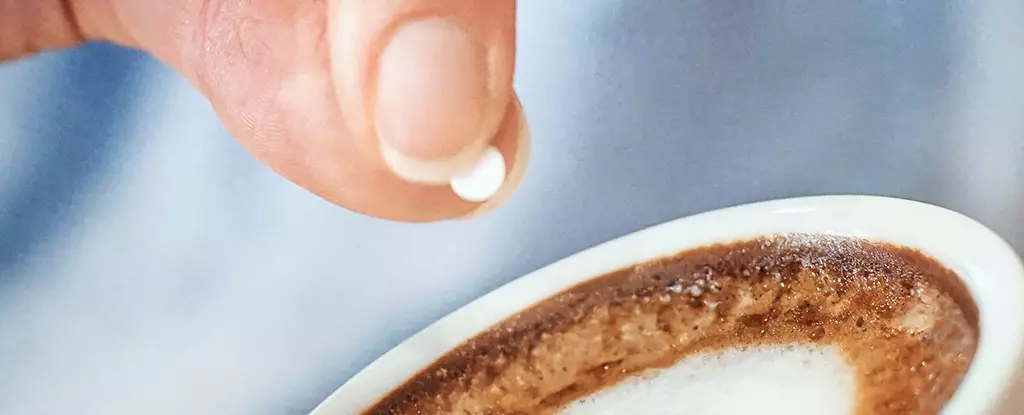Artificial sweeteners have long been viewed with suspicion, often vilified for their potential negative implications on health. Yet, emerging evidence suggests that saccharin—a prominent example among these sugar substitutes—might offer surprising benefits in the perilous battle against antibiotic resistance. While the health effects of such sweeteners remain contentious, we must broaden our understanding of their roles within medicine, especially considering the escalating crisis of superbugs that elude our current best defenses.
The notion that a sweetening agent could wield such antimicrobial power is both intriguing and potentially transformative. As a society, we have often oversimplified the conversation around artificial sweeteners, focusing predominantly on their calorie-counting abilities while overlooking their medicinal properties. A groundbreaking study conducted by researchers at Brunel University in the UK reveals that saccharin may hold amazing promise in combating some of the most formidable drug-resistant bacteria, evaluating not just the utility of these compounds, but rather reshaping our perspective on them entirely.
Scientific Breakthroughs and Implications
Ronan McCarthy, a microbiologist at Brunel University, described saccharin as a novel antimicrobial agent capable of compromising the structural integrity of bacterial pathogens. By targeting the very walls that shield these microbes, saccharin disrupts their growth cycles and invites conventional antibiotics to pierce through their defenses. The results are both powerful and essential. In experiments involving notorious bacteria such as Staphylococcus aureus and Escherichia coli, the researchers noted that saccharin displayed varying degrees of success in inhibiting bacterial growth. Yet, the prevailing notion is clear: this artificial sweetener is not merely sweetening our foods; it has the potential to sweeten the future of medicine itself.
Furthermore, studies indicate that saccharin might augment existing antibiotics, facilitating their access to previously resistant bacteria and enhancing their overall effectiveness. The mere idea that millions of dollars and years of research could be bypassed by utilizing a compound already available on grocery store shelves is revolutionary. It challenges the status quo of drug development and highlights the urgent need for innovative solutions to outpace the evolving nature of pathogenic bacteria.
The Epidemiological Landscape of Antibiotic Resistance
The statistics surrounding antibiotic resistance are staggering and increasingly dire. Each year, millions fall victim to infections caused by bacteria that have developed resilience against our best therapeutic interventions. These superbugs pose a significant risk to modern medical practices—complicating routine procedures ranging from dental extractions to cancer treatments, which rely heavily on effective antibiotics to manage infection risks. The urgency for developing effective strategies to combat these invincible foes cannot be overstated; the relentless pace of bacterial evolution is a daunting reality we cannot afford to ignore.
The fight against antibiotic resistance is not just a medical issue — it’s a social one. Society’s attitudes toward pharmaceutical innovation must evolve to align with the critical nature of this problem. Proposals like those advanced by Brunel’s research team must be taken seriously and expanded upon. We are at a crossroads where quick, imaginative solutions could save countless lives if we choose to explore unorthodox avenues for solutions.
Looking Forward: Balancing Hope with Caution
While the initial findings surrounding saccharin are indeed promising, we must also approach this development with a prudent mindset. The implications of using artificial sweeteners extend beyond merely bacterial inhibition. As we explore saccharin’s potential in clinical settings, it is vital to continue scrutinizing its wider physiological effects, ensuring that our quest for innovative solutions doesn’t inadvertently set off a chain of adverse outcomes.
In the world of medicine, where hope often intertwines with caution, saccharin may serve as both a beacon and a reminder. As we delve into its application against antibiotic resistance, one must advocate for more comprehensive research that balances the prospects of this sweetener against any unknown consequences it could present. The challenge is significant, but with courage and curiosity, we may just pull humanity back from the brink of this health crisis.

Leave a Reply